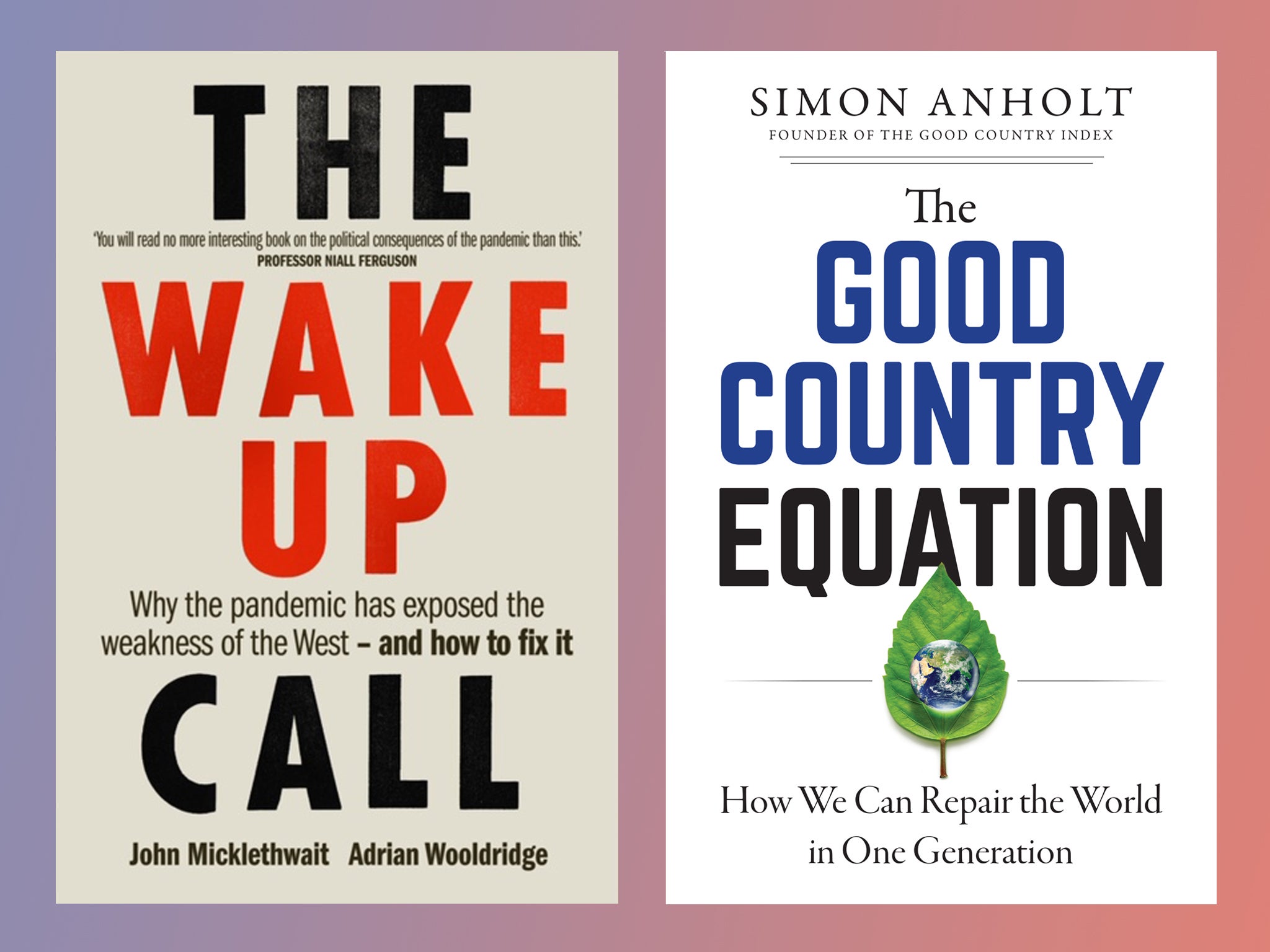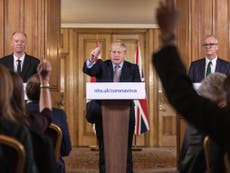The great minds of our times are at odds over how the pandemic will change our lives
Arjun Neil Alim takes a look at two new books - The Wake Up Call by John Micklethwait and Adrian Wooldridge and The Good Country Equation by Simon Anholt - that consider how the world can be fixed for the better

There are decades where nothing happens, and there are weeks where decades happen”. The situation must be serious when two of the West’s most prominent economic liberals begin a book by quoting Lenin.
Bloomberg’s John Micklethwait and The Economist’s Adrian Wooldridge do exactly that in their book-cum-pamphlet on how to relaunch Western liberal democracy after the pandemic.
‘Wake Up Call: Why the pandemic has exposed the weakness of the West – and how to fix it’ is one of two newly released books that prescribes how government should change for the benefit of us all.
Where Lenin looked to seize a moment of chaos in Russia to make history, Micklethwait and Wooldridge’s work encourages readers to consider why even the West’s star pupil, Germany, has a Covid mortality rate 20 times higher than that of South Korea or Japan.
The answer, they claim, is governance. The quality of the Western state has withered away, while its responsibilities and size have burgeoned.
The West became great because it pioneered the competitive, liberal nation state armed with an effective welfare state, according to the authors’ brief summary of history.
But now the system has stagnated. It has largely failed to adopt technology, and its most talented citizens tend to avoid public service in favour of the prosperous private sector.
And the state has been captured by special interests. In 2019 the UK dedicated 12 per cent of its national spending on the group most likely to vote – pensioners, while some American political donors have been rewarded with senior roles in the administration.
The authors propose 13 reforms in the style of past great liberal leaders William Gladstone and Abraham Lincoln. This liberal reformism includes more multilateral action on threats like climate change, more power to effective local actors like city mayors, a meritocratic public sector and more transparent government spending.
They hope that Covid will not be a simple victory for those who believe in the big state. Instead of a big state, they advocate a smart state: one that intervenes where it should, learns from the private sector and embraces technology.
The book ends with praise for liberal democracy. Ultimately, for all China’s strengths, more of its successful people want to live in America than vice versa. Many will hope this will allow the West to stay on top.
Simon Anholt is much more gung-ho about the decline of the West – what does it matter if we lose low-skilled jobs to China? This independent advisor to the leaders of over 50 countries is occupied with a more basic question: why doesn’t the world work?
Anholt has a simple answer: because most countries aren’t ‘good’ - they’re selfish. How much, they ask, is your country doing for the rest of the world?
The international branding specialist argues countries that enact policies that help others will also help themselves. A country perceived to be ‘good’ will benefit from foreign investment, talent attraction, tourism and trust.
This is why he encouraged Slovenia to increase its aid to its neighbouring Western Balkans region, instead of splurging on an advertising campaign to improve its image. Humanitarian support would do actual good, and demonstrate the fact that the country is wealthy and an active member of the international community.
Anholt’s book is less about Covid and more about international cooperation in general. He argues that globalisation has made it much easier to share problems (like infectious viruses) than solutions – which often involve trust and dividing responsibilities.
His career fills the pages of this book with fantastical stories. He locked himself in a bathroom in Bhutan’s presidential palace. He sat at dinner with Vladimir Putin, unaware that he was being tapped up for a job.
His career also highlights the power of imagination. He values wild card out-of-the-box policy ideas, for instance, suggesting Tuscany lend out its state art collection to locals.
Put dynamic and diverse groups of people together, he believes, and sparks will inevitably fly. And every policy enacted by a government should be screened for its effect on the rest of the world, too.
Like Micklethwait and Wooldridge, he has a disdain for the nativism and innate conservatism of politicians and the public sector. He dismisses nationalism as a “nasty fever”, which is ultimately fatal to all of us.
He is also realistic about the power and influence of organisations like the UN, preferring “entrepreneurial multilateralism” – where smaller informal groupings are joined together by a common interest.
Where the two books agree most strongly is on the need for a new generation of leaders - highly qualified and internationally-minded. More cooperation, transparency, education and trust are needed, if our system is to prove its worth over rivals.
The great minds of our times are at odds over how the pandemic will change our lives - some think could be the portal to a better world, while others believe nothing good will come of it. Who is right will ultimately depend on whether we listen to the people smart enough to reimagine our system for a new world.
‘Wake Up Call: Why the pandemic has exposed the weakness of the West – and how to fix it’ (Short Books) by John Micklethwait and Adrian Wooldridge was published on 3 September
‘The Good Country Equation: How to Fix the World in One Generation’ (Berrett-Koehler Publishers) by Simon Anholt was published on 11 August


Join our commenting forum
Join thought-provoking conversations, follow other Independent readers and see their replies
Comments